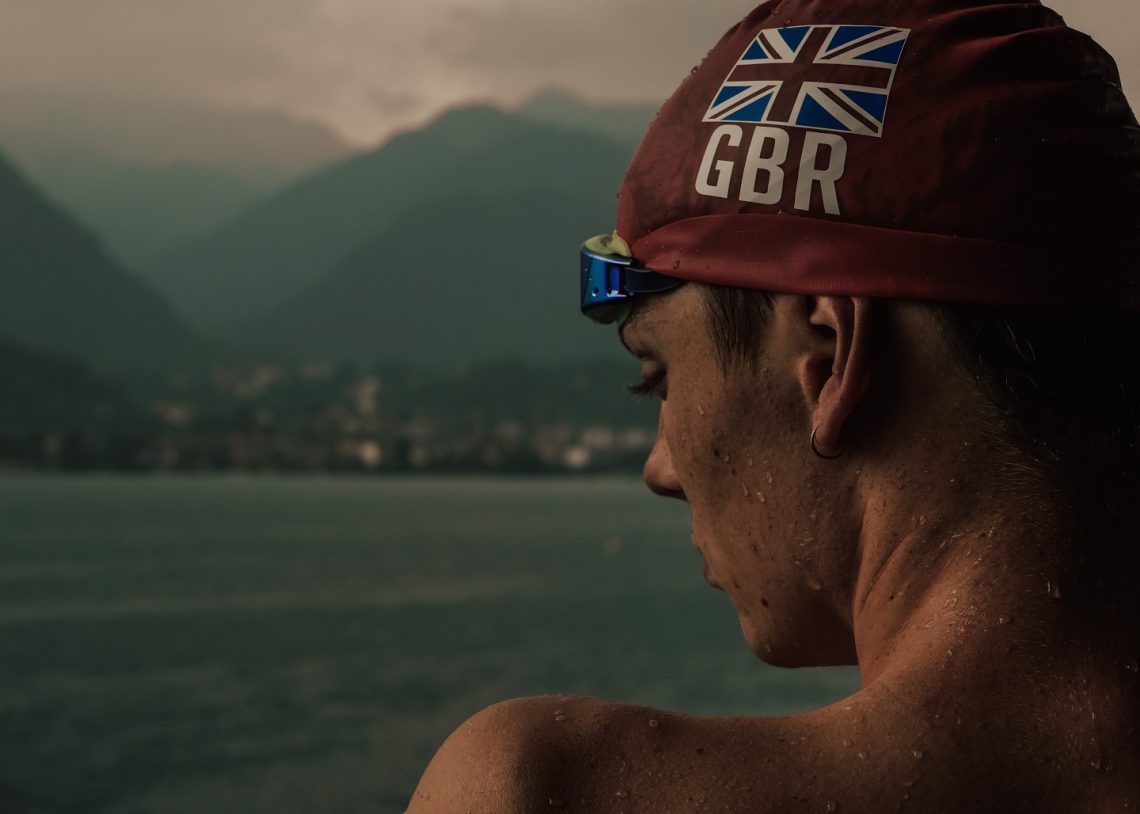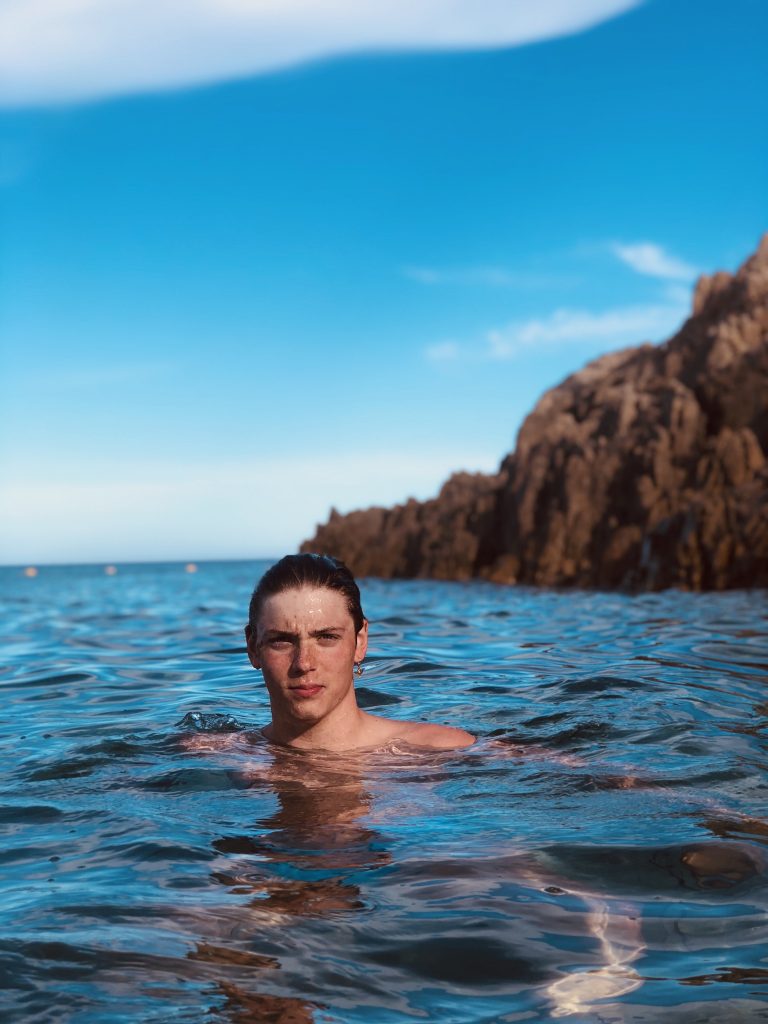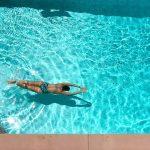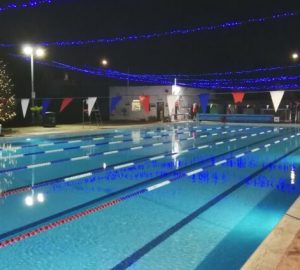
Interview with Olympic swimmer Hector Pardoe
Olympic Marathon Swimmer Hector Pardoe tells us what happened in Tokyo and how elite open water swimming could be made more interesting
Hector Pardoe represented team GB in the 10km marathon swim at the Tokyo Olympics in 2021. He’s a regular swimmer on the World Aquatics open water circuit. In 2020, Hector won the FINA Olympic qualifying event in Setubal, Portugal. After taking a gap year to train in France following his A levels, he now studies at Loughborough University and is aiming to secure a spot at the Paris Olympics in 2024. We met with Hector to find out more about his life in marathon swimming.
What attracted you to swimming and then to marathon swimming?
I started swimming when I was 8 and quickly found it was something I was quite good at. I trained with older swimmers and while I tried everything, I found my best events were the ones most people consider the hardest: the 400m and 1500m freestyle and the 200m fly!
When I was about 14 or 15, I went to Best Fest, an open water festival in Mallorca. It was an amazing experience and I discovered I loved open water. I also beat some of the older and more experienced swimmers and that convinced me to explore marathon swimming further. I later won a bronze medal at the world junior championships in 2016.
How did you end up training in France?
In 2018 I took part in the European Championships in Glasgow, where I finished 23rd. The French coach Philippe Lucas was there. He had (and still has) a reputation of being tough but effective and has coached some of the world’s best open water swimmers including Sharan van Rouwendaal. I didn’t speak French and he didn’t speak English but somehow I persuaded him to coach me. I took a gap year after A levels (which turned into two years because of covid), moved to Montpellier and joined his squad.
And was his reputation for being tough deserved?
Yes! He totally redefined my idea of hard work.
What would you be doing if you weren’t a professional swimmer?

I think I would be doing another endurance sport. I like the idea of triathlon and I’m intrigued by the process of training for and combining the three disciplines. I’m too old now to take up triathlon and compete at a high level but I’d love to give it a go for fun once I retire from full-time swimming.
That said, I do love open water swimming and the opportunities it’s given me to travel the world. I don’t always like the intensity of the training but there’s definitely something therapeutic about swimming, especially outdoors.
What happened in Tokyo and what was the aftermath?
I genuinely believed I had a medal opportunity in Tokyo or at least a top 10 finish, although my lead-up wasn’t perfect. After winning the qualifying event, I got ill with what I initially thought was covid but turned out to be glandular fever. My training times were terrible and I didn’t dare tell anyone in case I lost my place at the Olympics. Luckily, I recovered in time.
The way the race panned out was unusual. You often get someone racing ahead at the beginning but they usually get caught by the pack, so it’s nothing to worry about. However, I didn’t realise it was Florian Wellbrock (the 1500m gold medallist) who had set off in front and who had the ability to use this tactic successfully. The pace was high and the pack was soon strung out. I was quite far back and decided to try to make my way forward through the pack. I wanted to take advantage of the draft from other swimmers and maybe I was trying to be too smart. I moved next to the hip of another swimmer who then elbowed me in the face with such force it snapped the nose piece of my goggles and cut my eye.
Immediately this happened, I couldn’t see, and I panicked. Eyes are so precious and in that moment I thought my eye had come out. Maybe exhaustion and dehydration stopped me thinking straight. I probably had concussion too. I called for help and tried to explain but the first person who came didn’t speak English. By the time I realised my eye hadn’t fallen out, they had already put me on the rescue boat and taken me out of the race.
The aftermath was unpleasant. As well as dealing with my own disappointment and self-doubts, I saw a lot of negative comments on social media: people saying that I hadn’t shown true Olympic spirit, that I wasn’t a real Olympian, and giving examples of other athletes who had completed their events despite broken bones and other horrific injuries. In the end though, I’ve tried to turn this to my advantage and use it to inspire me to work harder and hopefully come back stronger for Paris in 2024.
What could be done to make elite marathon swimming more attractive to swimming fans?
I’ve got lots of ideas on this! Perhaps the most obvious is to make marathon swim racing easier to watch. For example, the LEN Cup event in Barcelona took place in a harbour, which gave spectators great access to the event. In contrast, some events send us far out to sea where nobody can watch anything. I’d like to see more swims in harbours where onlookers can watch the whole thing.
Related to this, using shorter laps would keep swimmers closer to the shore and more visible.
I think the sport could also be made more attractive to potential sponsors. If we made the changes suggested above, could event organisers then sell more prominent sponsorship and branding of the turning buoys? In addition, what about if swimmers were allowed to put bigger and more prominent branding on their swimming costumes or wetsuits? Or even on their arms via temporary tattoos? Currently it’s hard for swimmers to make money through sponsorship as we’re not permitted to show prominent branding.
Another suggestion is to add a new world ranking system along the lines of elite triathlon through a new points system, which might encourage people to support and follow their favourite swimmers.
And how about experimenting with fun ideas? For example, what if swimmers were allowed to wear fins on one lap out of a multi-lap race. They could choose when to wear them. This could add interesting dynamics and tactics. And how about having a team event where membership is by sponsorship rather than nationality?
I’d like to see better coverage on television too. It can be dull if the camera focuses exclusively on the lead swimmer and ignores the excitement and physicality of what is going on in the pack behind. Could the footage show tags above the swimmers to help identify them? Could the commentary discuss more of the tactics and share more details about the swimmers: their recent form, times in the pool etc.?
Finally, could we have more integration between amateur and professional swimmers at events? This would provide a ‘wow’ factor for mass participation swimmers and a ready-made audience for the elite swimmers. For example, Aqua Sphere (my goggles sponsor) are keen for me to take part in some mass participation events in the Lake District and try to break the records.








